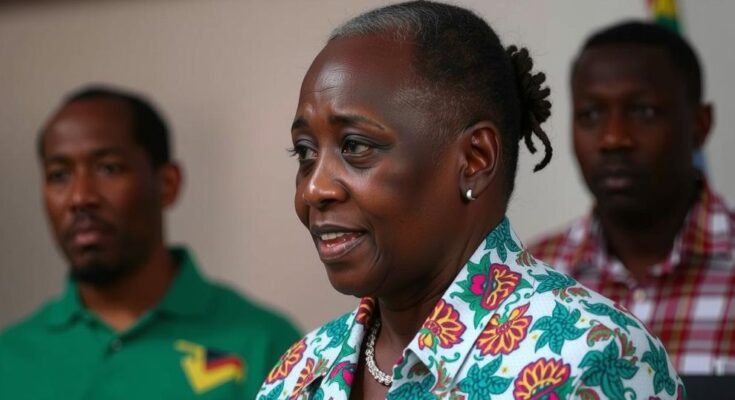Mozambique is tense ahead of a ruling on disputed election results following allegations of rigging, leading to weeks of protests and violent clashes. Opposition candidate Venâncio Mondlane threatens chaos if results are upheld, while calls for justice grow amid security crackdowns that have claimed lives. Analysts remain divided over the legitimacy of the initial results as the nation braces for potential unrest.
Mozambique is facing heightened tension as the nation awaits a critical ruling regarding the disputed results of the October elections. Following allegations of voter fraud, protests erupted, resulting in the deaths of dozens of individuals at the hands of security forces. Opposition candidate Venâncio Mondlane has warned of potential chaos if the constitutional council upholds the initial results, which heavily favor the ruling party candidate, Daniel Chapo. Meanwhile, claims from the Podemos party insist they rightfully secured a significant number of parliamentary seats that were not officially recognized. Catholic bishops have also raised concerns about ballot manipulation, with European Union observers documenting irregularities during the vote counting process.
The economic landscape in Mozambique has deteriorated due to the unrest, which has included border closures and trade disruptions with South Africa. The government’s response to the protests has been severe, resulting in the deaths of at least 130 individuals, as reported by Human Rights Watch. Furthermore, incidents of violence have escalated, with attacks on ruling party offices and the destruction of historical monuments, heightening fears of broader civil disorder.
As the ruling approaches, Mondlane has publicly called for nationwide prayer, urging citizens to seek justice from the constitutional judges, while dismissing claims by President Filipe Nyusi that he intends to remain in power beyond his term. Nyusi has emphasized the need to prevent political processes from being exploited to incite violence and unrest. Human Rights Watch’s Zenaida Machado criticized the ruling administration’s portrayal of protesters as entirely violent, stressing that not all demonstrators should be categorized as such based on the actions of a few.
Analysts remain divided regarding the legitimacy of the election results, with some affirming that anomalies were present but questioning whether Mondlane could claim victory. Observers from the Commonwealth acknowledged the unexpected magnitude of the ruling party’s support and noted the collapse of opposition votes in traditional strongholds. As the constitutional council prepares to announce its findings, the stakes are undeniably high, and the potential for unrest looms large in Mozambique.
In Mozambique, the 2023 elections have been marred by significant controversies concerning alleged fraud and irregularities. The main opposition party contends that they have been deprived of their rightful seats in parliament, leading to widespread protests and clashes with security forces. These circumstances have invoked grave concerns regarding political stability in a nation already coping with economic hardships. Allegations of misconduct have been supported by various entities, including religious leaders and international observers, intensifying the scrutiny over the electoral process. As the constitutional council prepares to rule on the matter, the heightened atmosphere of discontent poses serious implications for the country’s governance and civil peace.
In summary, Mozambique stands on the brink of turmoil as it awaits the ruling from its constitutional council on the disputed election results from October. The atmosphere is charged with fears of violence should the ruling not align with the opposition’s expectations. The current political strife serves as a poignant reminder of the fragility of democratic processes in regions where deep-seated tensions and allegations of misconduct persist. Stakeholders both within and outside the country are keenly observing the situation as Mozambique’s future stability hangs in the balance.
Original Source: www.theguardian.com




